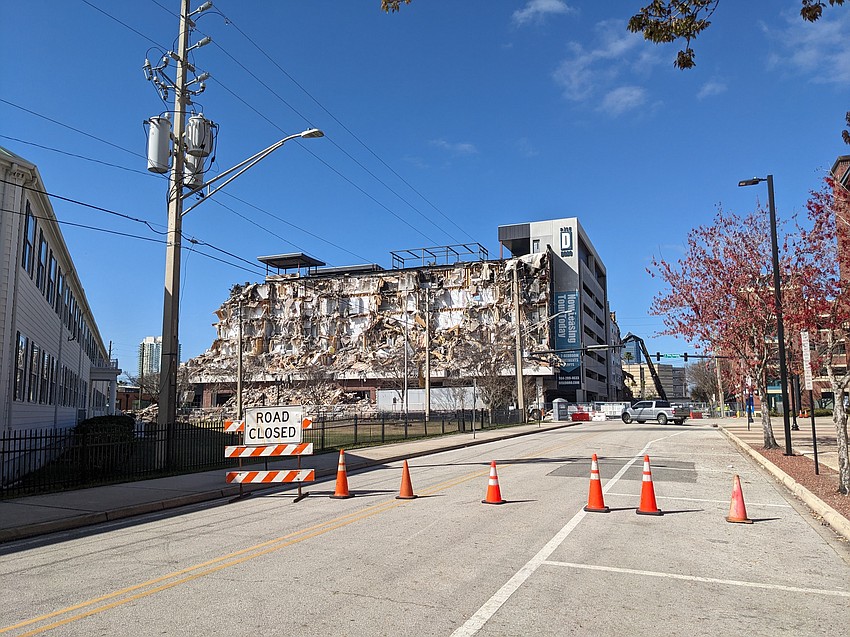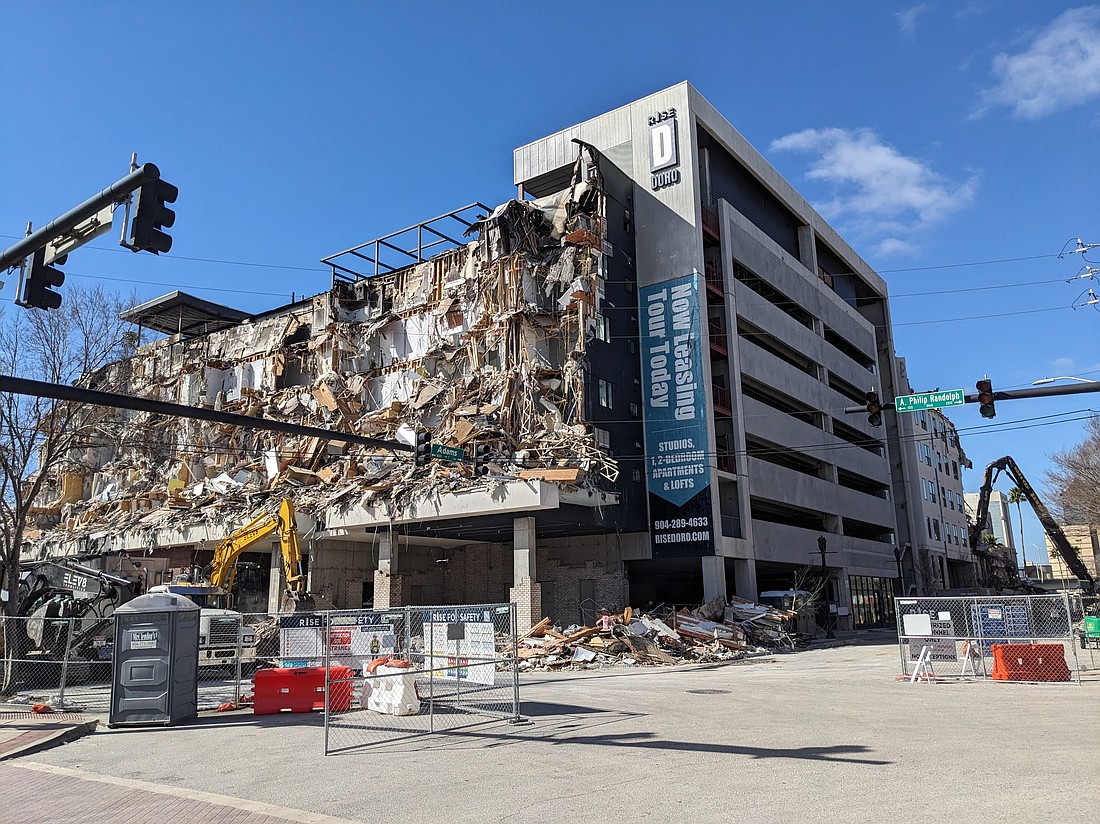
The developer of the Rise Doro apartment building is “very committed” to rebuilding the structure after it was heavily damaged by fire but is evaluating whether to redesign the project, said the chief executive of the Downtown Investment Authority.

DIA CEO Lori Boyer said she and her staff had met with developer Rise: A Real Estate Company and learned that it was examining whether to rebuild on the site using concrete and steel as opposed to wood framing.
“That really depends on the results of the information they get from the fire marshal and also an evaluation of the market,” Boyer said during a Feb. 8 interview with Daily Record staff.
“Obviously, there’s going to be a perception issue for them if they’re building exactly the same thing, whether people are worried about it.”
The wood portions of the $65 million building at 960 E. Adams St. are being demolished after the Jan. 28 fire that burned for more than 24 hours and caused extensive damage to the wood framing.
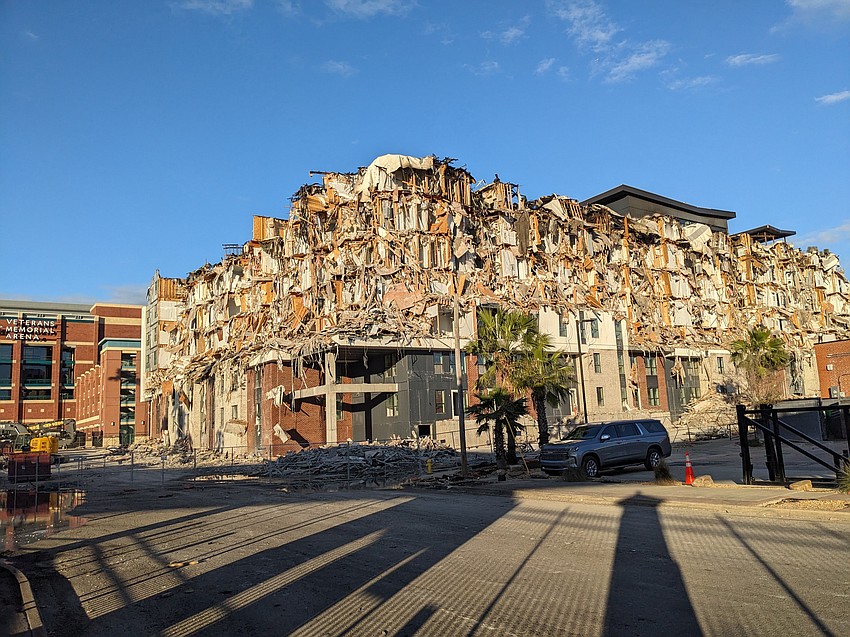
The seven-story Rise Doro was built with five floors of wood framing above a two-story concrete base, or podium. There is an eight-floor concrete parking garage and rooftop pool deck that was mostly surrounded by the wood-framed portions.
Rise said authorities had determined that the concrete portions of the building were not destroyed by the fire.
So-called podium-style construction, which generally consists of four or five wood-framed floors above concrete bases, is permissible under state building codes in Florida.
Boyer said wood-and-concrete construction is far cheaper than steel and concrete. Financially, wood-and-concrete projects fit more easily into the DIA’s guidelines for determining whether projects are eligible for publicly funded incentives, she said.
“In my ideal world, I would see people building higher density and building concrete-and-steel. It is more resilient, and I think it’s a more appropriate Downtown product. But from an affordability standpoint, the wood-frame construction over a concrete podium is just so much less expensive.”
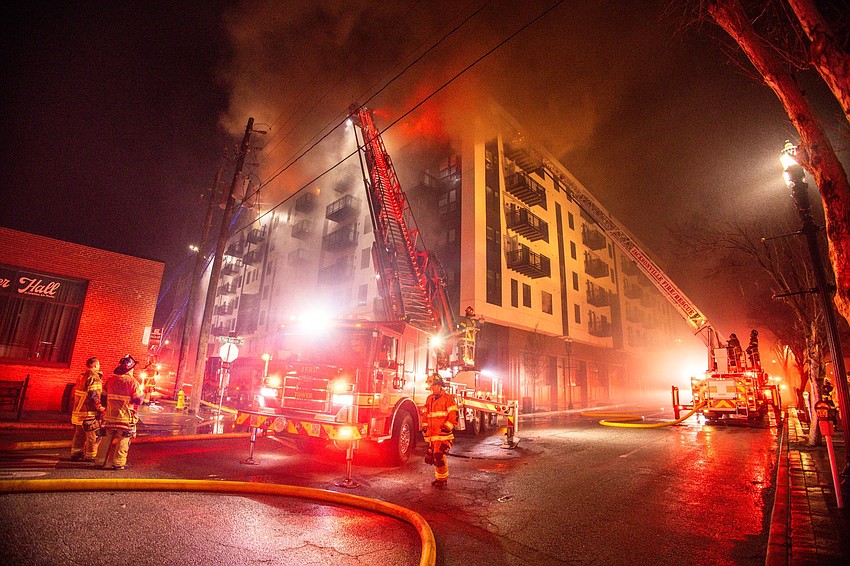
The DIA board authorized a $5.75 million tax incentive for the project in 2020, which would have been payable upon completion of construction. Because of increases in construction costs since then, it is likely the developer will seek a new incentive.
Mayor Donna Deegan said Feb. 8 that the cause of the fire had not been determined. She said it was unclear how long it would take for Rise to rebuild, adding that factors included “what can be salvaged, what the market looks like now, how will they be able to rebuild and what will that look like.”
“I don’t think we’re anywhere close to being there until we get rid of debris,” she said.
Rise Doro was the first major residential development in Downtown’s Sports and Entertainment District.
Rise President Greg Blais said the building was within days of move-ins into finished apartments when the fire broke out. He said Rise had been aiming for full completion in March.

Firefighters reported that the fire started on the sixth floor. Fire alarms sounded, but the sprinkler system had not been activated and did not discharge.
Officials said the sprinkler system was set to be turned on after a pressure test, which was scheduled within days after the start of the fire.
The city, citing the possibility of the walls collapsing, barred anyone from entering the building and ordered the closure of nearby businesses.
Intuition Ale Works south of Rise Doro has since partially reopened.
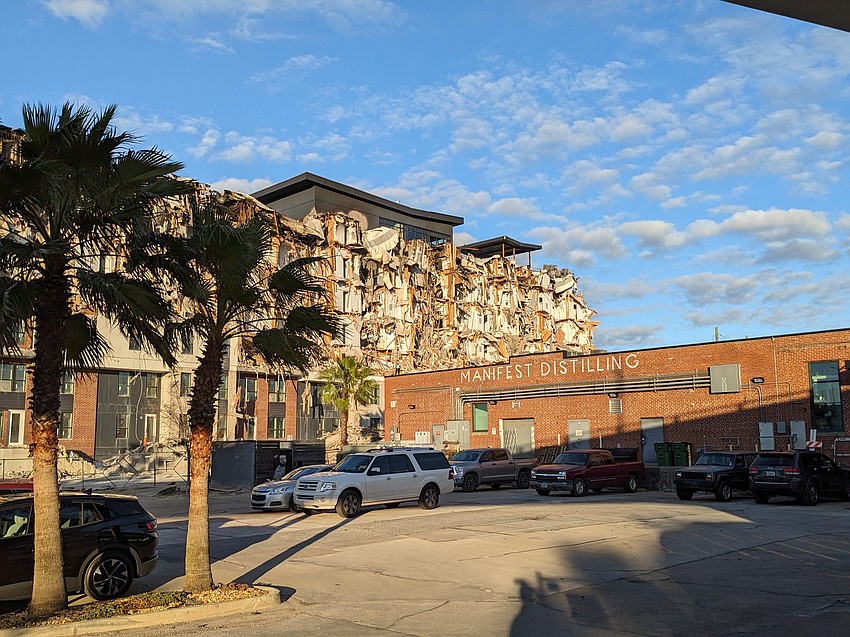
Demolition began Feb. 2 under an emergency permit issued for Jacksonville-based ELEV8 Demolition to take down the wood portions of the building.
Investigations by the federal and state fire inspectors and Rise’s insurer were underway at that time, with investigators working outside the building due to the city’s public safety order.
Rise has estimated that the demolition work will take eight to 10 weeks.
